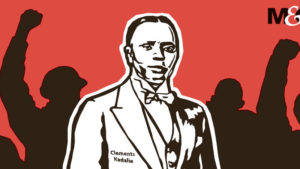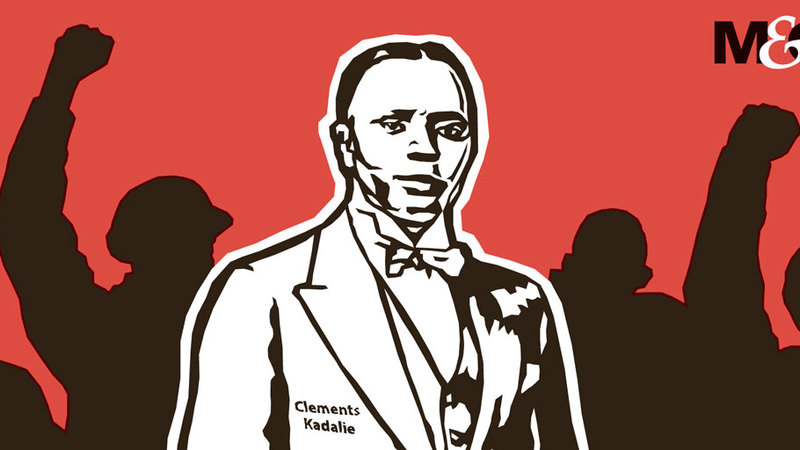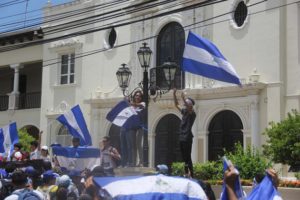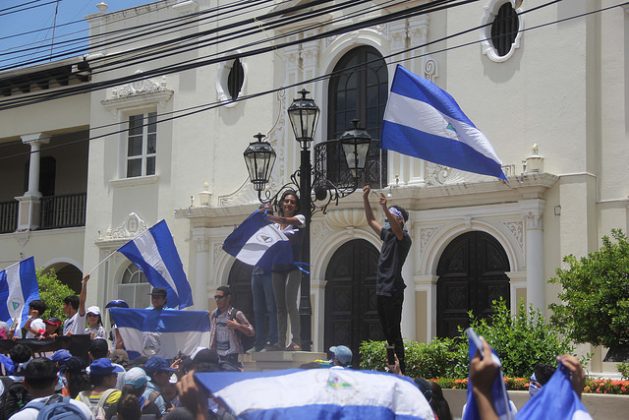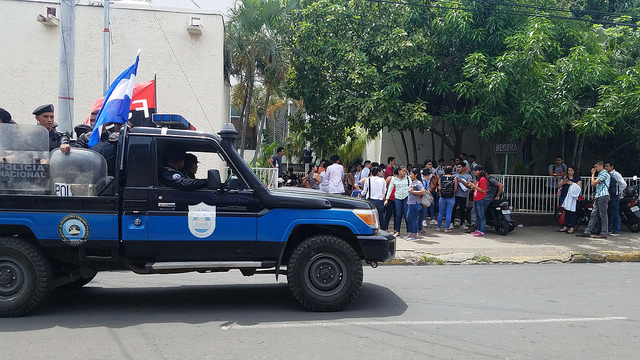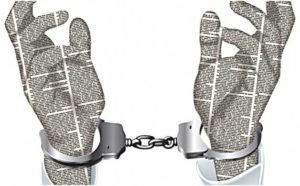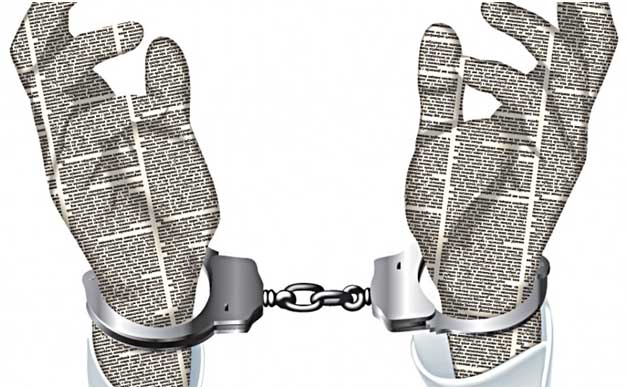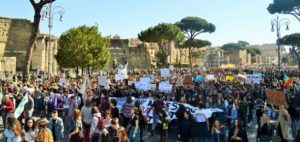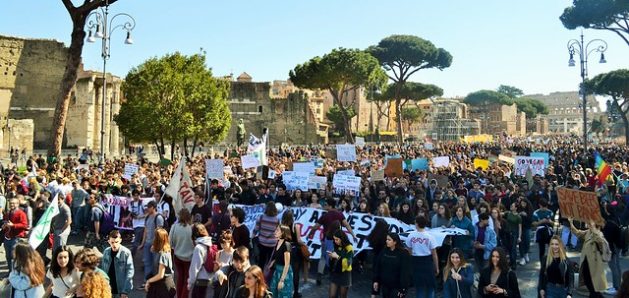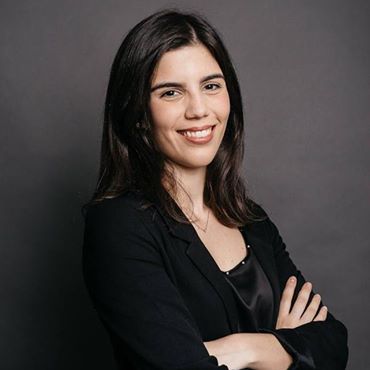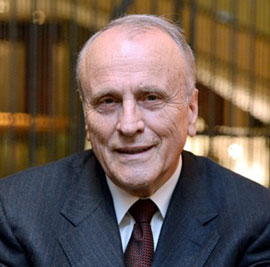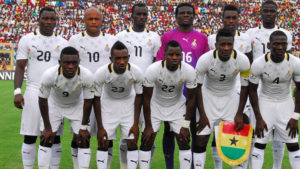

Introduction
A Dictionary of African-American Slang says juju, as it spells it, is from the Bantu word ‘njiu’, which means both ‘danger’ and a ‘fetish against harm’.
The Bantu languages are spoken in central and southern Africa.
Another Dictionary of Folklore, Mythology, and Legend, says juju is “the spirit dwelling within a made object or fetish”, in the belief of the Ibo in the lower Niger. The term is said to be applied to the ghosts and evil spirits of southern Nigeria.
Indeed, a good number of Africans generally see juju as any object that is worshipped superstitiously and used as an amulet or fetish.
So, how effective is Juju?
The interaction between sport and religion has been a significant area of study for sports psychologists, who have recognized the importance of religion and spirituality in athlete’s lives. According to research done by organizations such as Christians in Sport (CIS) in the United Kingdom, the fellowship of Christian athletes (FCA), and the centre for sport and Jewish Life in America, illustrates that a significant number of religious athletes exist in the world of sports. In Africa, religion and spirituality is a very sensitive issue. In dealing with issues in Africa, the scientific aspects of the issues are mostly ignored and the spiritual aspect rather takes centre stage. This is no cultural shock to Africans as we believe in spirituality in every facet of our lives and sports especially football is no exception. Religion and spirituality examples in sports include prayers, ritual activities, superstition, and myths just to mention a few exist in sports.
Juju scandal rocks Africa U-20 Championship final
Zambia defeated Senegal 2-0 to win the 2017 Africa U-20 Championship in a game the latter were suspected of using Juju.
Senegal were accused of using Juju in the final of the Africa U-20 Championship final, which was full of drama, as they suffered a 0-2 defeat against, hosts nation, Zambia at the National Heroes Stadium on Sunday.
One Senegalese player had to be forced by the referee to remove something he had put under his wrist band while another one was seen pulling something from his socks and throwing it in the Zambian net but Zambian players protested and quickly threw it out of the net.
During the game goals from PatsonDaka and Edward Chilufya won the Zambians their first title at youth level and their second major continental in 2012 by their senior team.
Pele
Even the best players can find themselves under the control of a superstition and when I say ‘best’ I mean Pele.
The Brazilian legend once gave a match shirt to a fan, only to then suffer a dip in form. He instructed a friend to track down the old shirt and a week later it was returned to Pele, who immediately returned to his goalscoring ways.
What the friend did not tell Pele was that he actually could not find the original shirt and simply gave him another one. If he had not lied, then football history might have been very different.
Anthony Kodjo Djifan explains ‘Voodoo’
King of Voodoo in neighbouring Togo, Anthony Kodjo Djifan, who says voodoo and juju share similar traits, believes juju plays football.
According to him, many clubs and national teams have often come into my shrine to enlist the help of Amegatetele-glikpo and Torgbui Ativinikpin (both deities) and testified to their wondrous works.
Juju and personal effort
- Maitre Polo, a 48-year-old karate-do specialist who is popularly known in Lome stated categorically that as much as juju is powerful, the team also will have to complement its work by putting in a lot of efforts on the field of play.
Maitre Polo is an international referee and professor of judo and karate-do. The former national trainer of Togo’s martial teams at the Abuja 2003 All Africa Games, own the Plaisir Judo Club.
Malawi-based renowned local herbalist, Dr Moffat Moyo, also says he has been supplying juju to both local and foreign clubs but quickly points out that hard work and training are the best medicine.
“I can confirm those teams from within and neighbouring countries and regions come to seek help but I cannot give their details. However, what I can advise is that hard work is the best medicine. The [concoctions] that we give only boost performance. I provide farmers with ‘medicine’ that boosts crop yields but if a farmer doesn’t work hard, he won’t realize bumper yields.
“If I provide ‘medicine’ to somebody who has never practiced boxing, will that work against an
experienced boxer? That’s why I am saying one needs to put in extra effort other than waiting for juju to do everything.
Former Technical Director of Nigeria Football Association (NFA), Kashimowo Laloko, once told the BBC World Service programme that he believes juju can change the course of a football match.
“I believe it does exist (juju). As an African, we have our customs and tradition.”
Laloko was sent off before the start of the 2000 African Cup of Nations quarter-final between Nigeria and Senegal for removing what he believed to be a talisman that was near Senegal’s goal.
“I had to pick whatever I found there and I left,” he said. Although Laloko was sent off after being reported to Botswana’s Ashford Mamelodi, who was the match commissioner, he has no regrets for his controversial action five years on.
“Before the match [the Senegalese] came onto the pitch and started performing some rituals.
“An executive member of CAF then asked me if I was going to allow what was happening.
“If I had not done what I did and we had lost, journalists would have written all sorts of nonsense,” Laloko told the BBC.
Perhaps, Laloko knows where he is coming from. Not too long ago, the BBC also reported that the Ivorian government settled a 10-year dispute with disgruntled witch doctors (juju men) who claimed to have had a hand in the country’s Nations Cup victory in Senegal 1992. They had threatened mayhem to befall Ivorian football if not compensated.
The witch doctors, from a suburb of the capital Yamoussoukro, were said to have been hired by the then sports Minister before the Nations Cup finale with Ghana.
The Elephants of Ivory Coast (Cote d’Ivoire) won the trophy after out-muscling Ghana’s Black Stars in a historic and dramatic penalty shoot-out (11-10) after extra time.
As a matter of fact, the belief in the use of juju and other forms of charms and incantations is not exclusive to West Africans.
Former trainer of the South African senior national team, Jomo Sono, is a self-confessed believer in the power of charms to change his fortunes on the pitch.
Former Zimbabwe international, Memory Mucherahohwa revelations on Juju
In Zimbabwe, there have been claims and counter-claims but the use of juju has largely remained shrouded in secrecy.
One of Zimbabwe’s most revered players has lifted the lid on the practice during his time at the country’s biggest football club, Dynamos.
Memory Mucherahohwa, who led Dynamos to the 1998 African Champions League final, has revealed a world of bizarre rituals, spells and charms to enhance the team’s fortunes on the field.
In his autobiography, Soul of Seven Million Dreams, the 49-year-old former Zimbabwe international said belief in juju was so deep that it got in the way of technical strategy and negatively affected performances.
“Every week before a game the team would consult a traditional healer. I, as the team captain, would be the one to execute whatever the sangoma [witch doctor] had said. Whether it actually aided us, I do not know,” Mucherahohwa writes.
“The team believed more in juju than players’ ability. We believed in collective use of the juju and consulted one traditional healer as a team.
“In most cases, we had the team’s traditional healers who were on the team’s payroll.
“The belief was so high at the club that coach [Peter] Nyama lost his job in 1990 after being fingered by a traditional healer as being guilty of jinxing the team.”
Mucherahohwa, who retired in 2001 after captaining Dynamos for eight years, also describes an incident in which a juju-man slit the players’ toes in order to administer his “medicine” and asked the team to play through the pain.
“The cuts were so deep and our toes were in pain throughout the match.
“The pain was made worse by the fact that we drew the match 1-1 [against Canon Yaoundé of Cameroon] to bow of the competition [1987 Africa Cup of Champions].
“In that case, juju did not help us at all, but that did not stop the team from believing in it.
“My loyalty was with the team’s cause and I was prepared to do anything. I was prepared to die on the field … and even volunteered to be the team’s juju carrier.”
A comical incident was recorded in Zimbabwean football a couple of seasons back when the Highlanders played Arcadia FC in an epic league match. It was reported by a Zimbabwean website that handlers of Arcadia, probably convinced their opponents had ‘jujued’ the approved entry points, decided to use a long ladder to get the players onto the field via one of the stands.
According to former goalie of the Zimbabwean national team, MuzondiwaMugadza, juju or muti as they call it there is a commonplace but as to whether it works is another story.”
“At Zimbabwean Saints, we were regularly given juju as a team or made to do certain rituals, but at the end of the day we had to battle relegation”, Mugadza told the New-Zimbabwe.com.
Here are the most ridiculous superstitions in world football.
Sam Johnson
Former Black Stars player said superstition plays a big part in the lives of many footballers.
He has made a startling revelation about him consulting witch doctors in a bid to improve his game and break the curse of injury.
“There is Juju in football and any footballer who says otherwise is a liar. I’ve practised it before,” he told Happy Fm’sAnopaBosuo Sports,
“I used it to play football for a longer period but it got to a time I decided to stop because it wasn’t helping like the way I anticipated but I think it did a lot for me also.
“I’m now a born again Christian and won’t advise anybody to venture into that because football at moment has changed a lot from our time, it has evolved.”
KoloToure
The Ivorian insists on being the last player to come onto the pitch. It sounds a harmless enough superstition, but it landed the player in real trouble during a Champions League game between Roma and Toure’s former club Arsenal.
With Toure’s then central-defensive partner William Gallas receiving half-time treatment on an injury, Toure refused to come out before Gallas and the game restarted without them. Toure eventually took the field without permission from the referee and received a yellow card for his troubles.
John Terry
The former England skipper admitted to John Cross of The Mirror that he has ‘around 50’ superstitions that he has to observe before a match. The list of rituals is so lengthy and involved that even Rain Man would consider it a bit strange.
Before a game, John Terry listens to the same Usher CD in the car, parks in the same spot, sits on the same seat on the team bus, ties the tapes round his socks three times and cut the tubular grip for his shin-pads exactly the same length. Terry even used the same pair of ‘lucky’ shin pads for ten years before losing them at an away game in Barcelona.
I wonder if wearing a full kit (including lucky shin pads) for a match that he’s suspended for, is another of Terry’s superstitions? It would certainly explain a few things…
Johan Cruyff
He has played for and managed both Ajax and Barcelona. Embodying the “total football” philosophy, he was voted European Player of the Century in 1999.
Johan Cruyff’s rituals seemed bizarre on the face of it. The Dutch footballing legend would always punch his teammate GertBals in the stomach before a match began. A slightly less aggressive, but scarcely less peculiar habit of Cruyff’s was to spit his chewing gum into the opponent’s half of the field just before kick-off. He felt that the influence of this latter habit was vindicated when he forgot his gum in the European Cup Final of 1969. His Ajax side lost 4-0 to AC Milan.
David Beckham
He spent ten years with Manchester United, during which he won a clutch of trophies, including the 1999 treble. He also turned out for a number of other sides, including Preston North End and Real Madrid. He made over a hundred appearances for England, many as captain.
Former England captain David Beckham admits that he struggles with obsessive-compulsive disorder. This has helped push him towards a series of rituals that he felt were very necessary to perform. “I have to have everything in a straight line, or everything has to be in pairs,” he said. Beckham admitted that he has often rearranged hotel rooms to make “everything perfect”. He will move all the leaflets and books into a drawer. The former Manchester United star’s wife Victoria also revealed that Beckham will throw away a can of drink from their fridge rather than tolerate an uneven number. “He’s a weirdo,” said Victoria.
Shay Given
He has kept goal for a host of clubs including Blackburn Rovers, Newcastle United and Aston Villa. He won over a hundred caps for the Republic of Ireland.
Prior to every match, he competed in, Irish goalkeeper Shay Given would place a vial of Lourdes holy water at the back of his goal as a lucky charm. “I carry it in my kit bag and it goes everywhere with me,” he said. Given was not the first Irish goalie to take something special to the field. His predecessor in goal for the Republic of Ireland was Paddy Bonner, who would take a piece of clay from County Donegal onto the pitch in his glove bag.
David James
He began his career with Watford in the 1980s. During the following decade, as a Liverpool player, he also represented England on 53 occasions. He has also worked as a model for Giorgio Armani and as a TV pundit.
Many footballers have obsessive rituals that go “way beyond the normal”, says former Liverpool goalkeeper David James. Take James himself, for instance. His elaborate routines, which he described as “mental machinery”, began the evening before each game. He would not speak to anyone and he would seek out a urinal, wait until it was deserted and then spit against the wall. James felt it really made a difference when he was between the sticks. “I was in this mad little world where as long as I did everything in the right order, then anything could be achieved,” he said.
Laurent Blanc and Fabien Barthez
Blanc played for several clubs including Napoli, Barcelona and Manchester United. A cultured defender, he won 97 caps for France and a World Cup winner’s medal in 1998.
A kiss is just a kiss – unless it’s a puckering ritual that leads to your country winning the football World Cup. French defender Laurent Blanc took to kissing the bald head of a teammate, goalkeeper Fabien Barthez, before each game at the 1998 World Cup finals. It made for quite an arresting sight: the big-haired Blanc kissing the vast, barren orb of Barthez. But Blanc’s superstition worked – the French went all the way to the final, in which they beat mighty Brazil. The French team had another tradition during the tournament: listening to the Gloria Gaynor song ‘I Will Survive’ in the dressing room.
Incest and spiritual sacrifice: The shocking story of Shiva N’Zigou
A former Ligue 1 footballer has claimed his mother was killed in a “spiritual sacrifice” in order to further his football career.
Shiva N’Zigou was a striker who played for both Nantes and Reims in the French top flight between 2001 and 2010.
In an amazing confessional given at a church his homeland, the former Gabon international also claims he lied about his age and had sexual relations with his aunt and his sister.
According to N’Zigou, his father murdered his mother in a ritual killing so that his son could keep all the money he earned from football to himself.
N’Zigou also says his parents doctored his passport at the beginning of his career to make him five years younger. Until now it was believed he was 34, but it seems he is really closer to 39.
In the year 2000, N’Zigou became the youngest player to score at the African Cup of Nations when he netted for Gabon in a 3-1 defeat to South Africa at the age of 16 years and 93 days. However, this recent revelation means he would actually have been 21 at the time.
N’Zigou reveals some shocking details about his personal life.
“I had [sexual] relations with my aunt,” he says.
“These relations happened again with my sister. I slept with my sister.
“I slept with a man. And I had another long-term relationship also with a man.”
This isn’t the first time a footballer has been linked with the extremely murky world of ritual killings.
In 2014, former Rennes and Sunderland striker Asamoah Gyan was forced to deny rumours he had been involved in the sacrificial murder of his friend, Ghanaian rapper Castro.
At this juncture, let’s review some observable facts in sports that has spiritual connotations.
Prayer
Javier Hernandez a.k.a ‘Chicharito’ is one player who says a prayer before a game kick off, the ritual has been the same before every game. In his previous team, he was not playing regularly and he got frustrated. His confidence as a player was dropping every time he was selected to play. This situation got a point of him quitting football. He finally got his chance and he took it. So he always goes on his knees to say a prayer to God for helping him become a success. This shows his belief in divine authority.
Lionel Messi is one player seen often raising his hands and looking at the sky during his goal celebrations. In an interview, he said “I am doing this because I dedicate my goals to grandmother. She took me to football but now she cants see how far I have come. Nevertheless, she continues to help and my family”. This shows that it is not only Africans who believe in life after death, the whites also do.
Ricardo Kaka is another football player who believes that his technical ability is a God-given gift. He says that he has perfected the gift God gave him and that is why he plays well. His belief in God is observed in his goal celebration and at times wearing t-shirts under his jersey with religious inscriptions.
Ritual activity and superstitions
Superstitions are commonplace in football. Plenty of players, coaches and fans strive to achieve some kind of spiritual sanctuary before a game by performing various rituals.
Giovanni Trapattoni, an Italian coach who considered the most successful in Serie A is deeply superstitious and used to take holy water to matches when he was boss of the national team. The holy water was provided by his sister, who just happened to be a nun (roman sister).
Raymond Domenech, a former France national team coach would consult the horoscopes before making his team selection. Players even claimed to have been dropped because alignment of the stars was against them.
Winfried Schaffer, coach of Cameroon national team during the 2002 African Cup of Nations in Mali was arrested along with his assistant Thomas Nkono for trying to place a voodoo charm on the pitch before the game.
Tony Sylva, a Senegalese goalkeeper was accused of hiring a witch doctor to smear his goal posts magic ointment. After the alleged treatment, Sylva went 448 minutes without considering a goal.
In Ghana, fans and supporters of the two biggest clubs always seek for supernatural powers for intervention or favours when they meet in a match. The winner of the match mostly attributes it to their spiritual fathers or fetish priest and priestess over the abilities of their managers or players.
Kotoko-Hearts clashes
Superstition and juju over the years have played a major role in the biggest fixture in Ghana football
Although some may disagree that superstition has no role to play in football, ardent followers and players of Ghana Premier League clubs Accra Hearts of Oak and Kumasi Asante Kotoko know it takes more than just playing to win.
Sometimes the rule of form guide is defied because football is not just the physical play.
Here is a recount of some of the Hearts of Oak versus Asante Kotoko matches that were dominated by juju and superstition.
1984 – Sunday, 23rd December 1984
Asante Kotoko suffered a 0-2 defeat at the hands of Hearts of Oak in Accra in 1984. The Porcupine Warriors went down 0-2 in the first half through goals from OfeiAnsah in the 3rd minute and George Lamptey in the 5th minute.
During the break, something bizarre happened: Asante Kotoko returned from the dressing room having changed from their red jersey into white for the second half.
According to the reports, a juju man told them to change their jersey because the white jersey was going to turn things around for them. However, it was mission impossible as they failed to stage a comeback in the second half.
1989 – 31st December 1989 (League game Cum 31st Revolution Cup Match)
Hearts of Oak 2-2 Asante Kotoko (6-7penalties)
The Ghana Football Association (GFA) introduced penalty shootouts to decide a winner whenever a game ended in a draw in the 1989-1990 season.
Hearts of Oak were held to a two-all draw at the Accra Sports Stadium by Asante Kotoko with the Porcupine Warriors subsequently winning 6-7 in the penalty shootout to break the tie.
Sarfo Gyamfi nicknamed the Black President, a key member of the Asante Kotoko team was told by a juju man that two different balls will be used for the game- a ‘blue and black’ ball and a ‘white and blue Adidas’ ball.
According to the juju man, the black and white ball will favour Asante Kotoko, whereas the blue and white ball will be to the advantage of the Phobians.
Sarfo Gyamfi and Mohammed Odoom, who kept the post for Kotoko, fashioned a covert plan: whenever a blue and white ball was introduced they resolved to deflate it with a needle they hid in Odoom’s gloves.
Interestingly, Kotoko got their two goals through the black and white ball and conceded the two goals from the blue and white ball.
Odoom, meanwhile, was ruthless: he deflated the blue and white balls whenever it was in play.
The ball that was eventually used for the penalty shootout was a black and white Adidas ball. Asante Kotoko won 7-6 to take two points and the trophy at stake, while Hearts of Oak got a point for drawing in regulation time.
Also, because it was an anniversary game to commemorate the December 31, 1981 coup d’etat that brought the then incumbent military government into power, the Head of State, Flt Lt Jerry John Rawlings, led the delegation to inspect both teams before kickoff.
Sarfo Gyamfi, however, snubbed a handshake from Rawlings because apparently, the juju man had told him Kotoko would lose should all the players exchange a handshake with the Head of State.
The ‘Black President’, as Gyamfi was nicknamed, was suspended for some games for snubbing Ghana’s leader, but it was later rescinded.
1998 – Hearts 1-1 Kotoko (7-6 penalties)
This game was a June 4 Cup match (June 4, 1979 was the date on which Flt Lt Jerry John Rawlings staged his first coup d’etat, bringing into power the Armed Forces Revolutionary Council – AFRC – that replaced the Supreme Military Council II government of General F.W.K Akuffo).
Both Kotoko and Hearts had been hinted by spiritualists after they went for consultations that the results won’t go in their favour if they start with eleven men on the field.
So they both started the game with ten men – before Lawrence Amankwa and Jacob Nettey came on for Asante Kotoko and Hearts of Oak respectively. The match ended 1-1 and Hearts of Oak won 7-6 in the penalty shootout to break the tie.
31st August 2003 (Hearts 1-1 Kotoko)
Asante Kotoko, afraid of being hypnotized under a presumed Hearts of Oak spell came to the stadium in bits and pieces.
When they finally assembled in the dressing room, they used the tartan tracks briefly for the warm-up and only went onto the pitch after their opponents had done so.
The game itself was also full of drama, as Hearts of Oak scored the opener through Bernard Dong Bortey with YusifAlhassanChibsah firing the equalizer which created much controversy.
Chibsah shot the ball in after goalkeeper Eben Dida who was brought down was cruelly forced to spill the ball in the six-yard box.
The decision angered the home fans who resorted to hurling bagged water and other missiles at the match official and players.
2005 – Asante Kotoko (1-1 Hearts of Oak)
The final of the 2004 CAF Confederation Cup which was played in February 2005 is believed to have had some superstitious acts.
Accra Hearts of Oak who won on penalties after the game ended in a 1-1 draw claimed they used the hair of the Asante Kotoko coach Hans Dietar Schmidt to perform some rituals.
It was amazing on the day that Charles Taylor, who was the most exciting player of the Porcupine Warriors, was taken out by the German at a time they were leading 1-0 against Hearts of Oak.
A group of Hearts of Oak fans later came out to ‘confess’ that they masterminded their side’s victory by collecting Dietar Schmidt’s hair from the saloon he usually has his hair done and that influenced his decision to substitute Charles Taylor.
2005 – (Hearts 1-1 Kotoko)
Events from the start of the match set up the tone for an uncompromising game as both teams decided not to come into the stadium in their respective team buses but rather preferred to walk into the stadium.
More was to come when after the usual warm up, both sides appeared in the tunnel dressed in all-white jerseys resulting in a lot of deliberations between officials of the teams.
Kick-off was held up for more than one hour 10 minutes.
After sanity prevailed, Hearts players went to the field of play in a strip of green jerseys.
Another piece of drama occurred that delayed the match further as Kotoko had to change their white socks to yellow as it clashed with the colours of Hearts of Oak.
All these happenings took place because both sides had consulted some juju men concerning their fate and they were advised to go through those exercises if they wanted to avoid a defeat.
2012 (Kotoko 2-1 Hearts)
Dr. K.K Sarpong, who was unknown in the football circles until he took over the Asante Kotoko job as the Executive Chairman of the club in 2011 was advised to seek spiritual backing from a juju man if he wanted to be famous among the Kotoko fraternity.
Various accounts claim he was introduced to a spiritualist at Nkoranza in the BrongAhafo Region and in Kotoko’s home game against Hearts of Oak, the Chief Executive Officer of the Ghana National Petroleum Corporation (GNPC) allegedly had to harbour a female fetish priest in his house to chant to ensure Kotoko won the game.
Asante Kotoko scored first before Mahatma Otoo drew Hearts of Oak level. K.K Sarpong who was troubled with the outcome was forced to place a call to the fetish priest.
The priest told the Executive Chairman of the club that he shouldn’t worry because Kotoko was going to carry the day.
Michael Akuffo’s stunner from long range in added time won the Kumasi giants all the three points, bringing relief to Sarpong.
(19 March, 2017) Hearts Pip Kotoko 1-0 in Top League Clash…
Vincent Atinga became the hero as he ensured that the Porcupine Warriors’ unbeaten run in the Super Clash was halted with a late penalty
Hearts of Oak defeated rivals Asante Kotoko 1-0 in matchday eight of the Ghana Premier League at the Accra Sports Stadium.
Defender Vincent Atinga slotted in a late penalty for the hosts after Ahmed Adams handled the ball in Kotoko’s box.
Kumasi Asante Kotoko marched to the pitch walking backwards, which was awkward after Hearts coach Frank Nuttal has entered to stir the supporters into battle spirit, but it was Kotoko coach Croatian ZdravkoLugarusic who receive the loudest cheers when he also waved the reds.
Hearts won the toss and the fabulous lads kicked off in grand fashion, but before the clock could start clicking, Hearts player kept falling on the pitch as if they were not fit or hypnotized, as all clashes between the two sides are characterized by juju or some mystic forces.
Fans of Kumasi Asante Kotoko may still be cursing Referee Samuel Suker for blowing a doubtful penalty against them to break the eight-year jinx of Accra Hearts of Oak not winning at the Accra Sports Stadium.
Leicester City 2015-16 EPL Win
Leicester City won their first Premier League title in the 2015-16 season; owner Vichai Srivaddhanaprabha has sought spiritual guidance since buying Leicester City.
The reburial of Richard III – which took place in March 2015 which coincided with the team’s dramatic rise from the relegation zone, but in Thailand, the home of the club’s owners, there’s a belief that one of the sports’ most unlikely triumphs has more to do with spirituality.
Buddhist monks in Thailand believe they helped the team’s remarkable run. Over the last three years, Buddhist monks have been visiting the club to bless the pitch, bestow special sacred cloths on the players and spread karma.
Chief Monk PhraPrommangkalachan is in little doubt that his unseen powers are propelled Leicester’s unforeseen rise.
Also in Rwanda during a football championship in 2016, Rayon Sports and Mukura sport met and during the last minute in the first half, Musa Camara who was the striker of the losing side, Rayon sport, decided to help his team by resorting to magic.
He went into the goalposts of his opponent and planted something in the ground at the left post and quickly ran away.
At the very beginning of the second half, the same player, Musa Camara scored a goal and tied up the match.
JUJU IN GHANA
In Ghana, the use of juju in matches is a commonplace, but the practice is deeply steeped in secrecy.
Clubs like Accra Hearts of Oak and Kumasi Asante Kotoko, Gullivers of the Ghanaian game, have occasionally used undesignated entry points to the stadium and got punished for the offence.
The two clubs might have been told by whoever they consulted that using the approved entry points signified a calamitous result. And, they dared not disobey.
In the words of former Ghana coach, BurkhardZiese: “Club officials in Ghana draw a lot of money from teams under the pretext of paying a juju man but end up pocketing it “.
Perhaps, that explains why owner of Ghanaian premiership side, Tema Real Sportive, Y.A. Ibrahim, recently called on the Professional League Board (PLB) and the Ghana Football Association (GFA) to, as a matter of urgency deal severely with juju men in the premiership.
“Football games are supposed to be won on merit on the field and not by evil spirits,” he said, adding that when the situation was not controlled, a time would come when the results of matches in the country’s football will be determined by soothsayers.
As far as football is concerned, win, draw or lose is unavoidable. Surprisingly when European teams are not faring well, fans of these teams take it as normal but when it comes to their local clubs failing to perform above their expectations, they turn around to attribute their team’s abysmal performance to a spiritual problem.
The likes of Real Tamale, Gbeewa United, Susubribi, Fankoba, Kpando Heart of Lions, Ho Voradep, Hasacas, Eleven Wise are teams that wouldn’t have been relegated if indeed Juju is real. Also, India and Benin would have dominated the world football easily without any difficulty all because people who seek for supernatural powers normally go to these places to empower themselves.
In the late ’70s players of Glorious Accra Hearts Of Oak failed to score a goal against their Guinean counte

